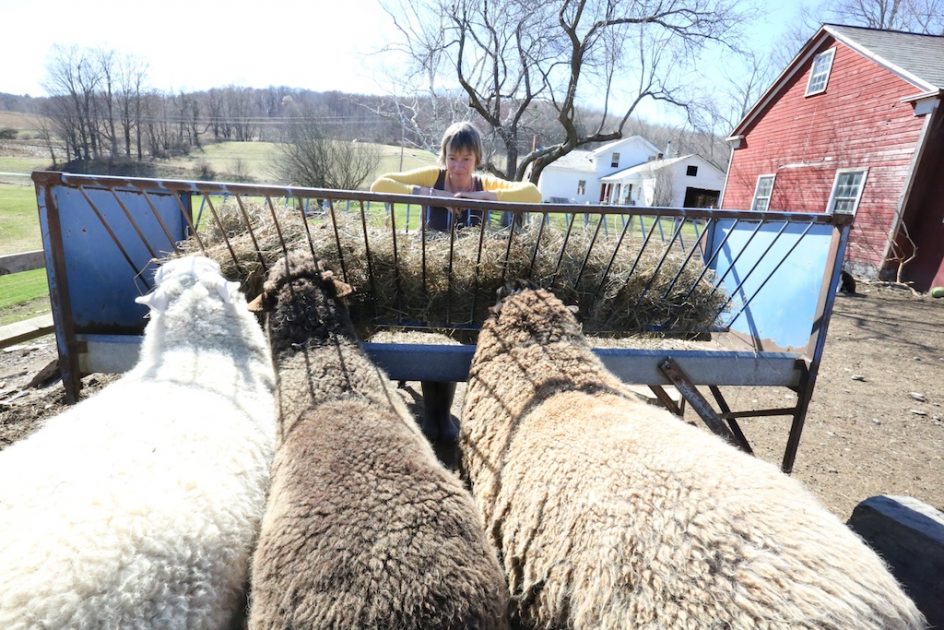
Almost everyone talks to their animals, especially if they have pets or farm animals. Maria makes it a habit of talking to the sheep every day while they are eating, and this, we find, is a good way to get them comfortable with you. Food is everything to animals, their greatest instincts are for survival. The more they associate people with food, the more comfortable animals are around them, the more responsive they are, the more trainable, and the more secure.
We speak to our animals in a calm and secure voice (unless we are yelling at Fate to stop eating revolting things in the woods.) I speak to the dogs more than any other of our animals, and then to the donkeys. The donkeys can hear us speaking in the farmhouse, they bray and demand food the minute they hear our voices.
The other way we speak to our animals is through our emotions. Maria’s emotions are very close to the surface, and we can see the animals reacting to them. The donkeys know (the dogs also) if we are angry or calm, impatient or focused. Many people don’t trust this kind of communicating, but we have found it invaluable and revealing.
Animals can literally smell emotion, and they can also sense it in our body language, eye contact and movement. What you feel is what they see and hear, even more intensely than through words. We are delighted with the way in which we communicate with the animals on the farm, it is a peaceable place. The animals get along with one another, and they trust us and respond to us. It just takes time and patience and calm.
